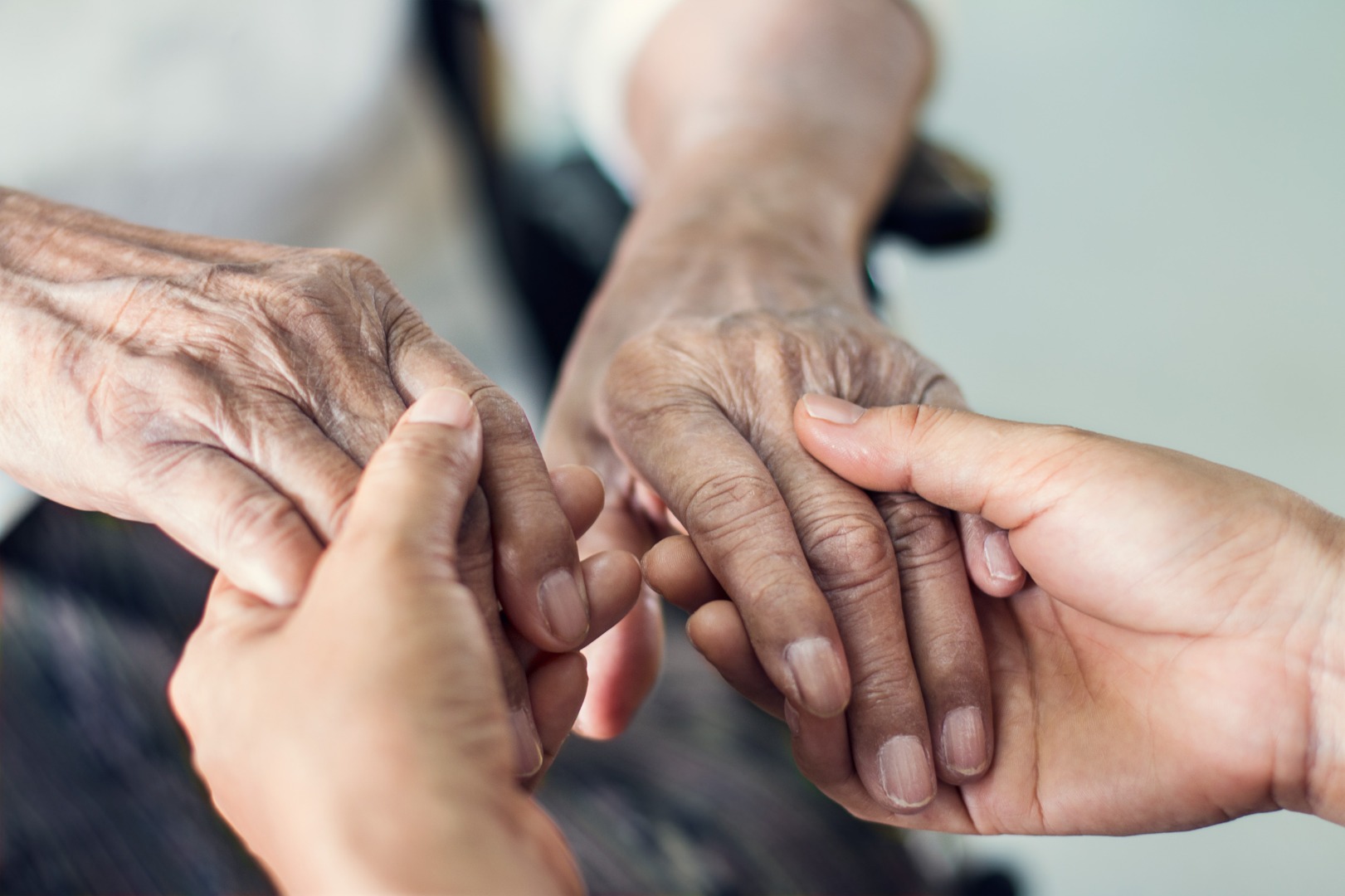How can allied health professionals help carers?

OT student, Hazel Jurd, at the University of Lincoln, shares her thoughts on how allied health professionals can support those who care for other people
When we visit a patient in the community, or they visit us in a clinic or hospital setting, how often are they with someone who looks after them? Their carer may be helping for a few hours a week, or they may be with them up to 24 hours a day, every day. Carers are not always with the person they are caring for; they may be attending their appointment with you for their own health. Either way, there is always an opportunity for us as allied health professionals (AHPs) to ask the right questions and check in with carers, choosing our moment and asking discretely if they need any support.
Carers do not only look after older people. Adults and children with physical disabilities, learning difficulties and mental health needs may often need extra help. These carers may be teenagers, working age adults, or older adults.
Caring for another person is associated with poverty, due to a lack of flexible employment opportunities for the carer. It is also associated with poor mental health exacerbated by social isolation and loneliness, and a lack of time to complete meaningful activity. Physical health can also decline when caring for another person, as time available for exercise or physical activity is minimal. In February 2022, The Carers Trust reported that 51% of 1550 surveyed unpaid carers had to ‘give up hobbies or personal interests due to their caring role’ (Carers Trust, 2022).
During the pandemic, unpaid carers saved the health and social care system £530m a day (Employers for Carers, 2020). This has continued, as a recent report by Carers UK found that carers save the social and health care system in England and Wales ‘£162 billion a year, 29% more in real terms than 2011’ and those contributions are roughly ‘equivalent to the budget for NHS health service spending’ (Carers UK 2023). Unpaid carers provide care which would otherwise be provided by community carers or in residential settings through the social care system.
It is important to help carers and get them the support they are entitled to. Being a carer can be a very lonely journey, and if just one person asks how they are, this can have a huge impact on their wellbeing. So how can we help carers as AHPs?
- Make every contact count - ask the right question. Don’t ask ‘are you a carer?’. Instead, ask ‘do you look after a someone who needs help because of their illness, frailty, disability, a mental health problem or an addiction and cannot cope without your support?’
- Not all carers identify as carers – they may need help to see this is what they are doing
- Know where to signpost and find resources for your local area – see postcode finder below
- Don’t be afraid to admit you don’t know the answer – but find out
- Remember not all carers are looking after elderly relatives
- Be aware of the different group of carers: young carers, parent carers of children with a physical or mental illness or disability, older people caring for relatives
- Understand carers’ assessment rights
- If you see carers in a primary care setting and coding indicates they are a carer, always ask how they are doing within this role
- If you work in acute care, be aware that people can become carers very suddenly
- See carers as individual people with their own lives
- But also involve carers in the patent’s care and decision making
- Value lived experience in employees and managers
- Managers - identify who your carers are and who may approach you for carers leave
- Employers – use Carers Passports to open the conversation with staff about their caring responsibilities
- Provide flexible working opportunities
- Provide training to employees.
Useful resources
Carers UK: www.carersuk.org
Carers Trust: www.carers.org
Local service finder for your area: https://carers.org/help-and-info/carer-services-near-you
NHS Guide for Young Carers: https://www.nhs.uk/conditions/social-care-and-support-guide/support-and-benefits-for-carers/help-for-young-carers/
Carers Assessments: https://www.carersuk.org/help-and-advice/practical-support/carers-assessment/
Carers at work: https://www.carersfirst.org.uk/help-and-advice/topics/working-when-you-are-caring/
References
Carers Trust (2022) Pushed to the edge. Available from https://carers.org/our-social-care-campaign/carers-trust-social-care-survey-findings-2022
Carers UK (2023) Valuing Carers research report. Available from https://www.carersuk.org/reports/valuing-carers-research-report/
Employers for Carers (2022) Unpaid carers save UK state £530 million every day of the pandemic. Available from https://www.employersforcarers.org/news/unpaid-carers-save-uk-state-530-million-every-day-of-the-pandemic/
